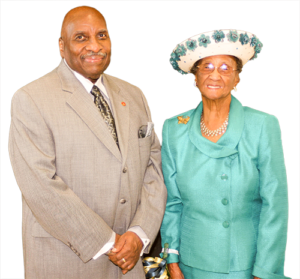In Nature & Power
[PRINT HERE] John 5 (9-27-17) Lecture Notes
St. Joseph Missionary Baptist Church
Wed Night Bible Study
JOHN 5:17-21
Dr. E.C. Gregory, PhD – Bible Facilitator 9-27-17 Dr. H.T. Rhim, Pastor
JESUS EQUAL TO GOD
[In Nature & Power]
John 5:17-21 (KJV)
17 But Jesus answered them, My Father worketh hitherto, and I work.
18 Therefore the Jews sought the more to kill him, because he not only had broken the sabbath, but said also that God was his Father, making himself equal with God.
19 Then answered Jesus and said unto them, Verily, verily, I say unto you, The Son can do nothing of himself, but what he seeth the Father do: for what things soever he doeth, these also doeth the Son likewise.
20 For the Father loveth the Son, and sheweth him all things that himself doeth: and he will shew him greater works than these, that ye may marvel.
21 For as the Father raiseth up the dead, and quickeneth them; even so the Son quickeneth whom he will.
5:17. God rested on the seventh day (Gen. 2:2-3) from His work of Creation. But Jesus pointed to the continuous work of God as a justification for His Sabbath activity. God sustains the universe, creates life, and brings judgments on the wicked. It is not wrong for His Son to do works of grace and mercy on the Sabbath. The words My Father should be noted. Jesus did not say “your Father” or even “our Father.” His opponents did not miss His claim to be the Son of God.
5:18. The Sabbath controversy was enough to cause them to hate Jesus, but the implication of His claim that God is His own Father was impossible for them to accept. To them, God has no equals. Jesus’ claim, in their thinking, was a monstrous blasphemy. To be equal with God suggested, they thought, two gods and therefore polytheism. To make oneself “equal with God” was a claim of arrogant independence. In the Talmud (Old Testament) four persons were branded as haughty because they made themselves equal to God: pagan rulers Hiram, Nebuchadnezzar, Pharaoh, and the Jewish King Joash.
5:19. Jesus explained that He is not independent of or in opposition to the Father. His activities on earth are not of His Own Will but of His Father. The Father directs and has sent the Son. The Son’s activity imitates the Father, and the Two always work together.
5:20. The Son is in no way independent of or in rebellion against the Father. Their relationship is one of continuous love. The Son is not doing simply a part of God’s will; He has a full disclosure of all the Father’s works. By the Father, the Son will do even more amazing works than physical healings.
5:21. Jesus, being the Son of God had the right over life and death. (A king of Israel asked Naaman, “Am I God? Can I kill and bring back to life?” [2 Kings 5:7]) One of Jesus’ “greater” works (John 5:20) is the giving of life. The Son gives life to whom He is pleased to give it. The giving of life includes spiritual (eternal) life and a resurrected body. The resuscitation of Lazarus (chap. 11) would illustrate both.
The Bible Knowledge Commentary: An Exposition of the Scriptures by Dallas Seminary Faculty.





